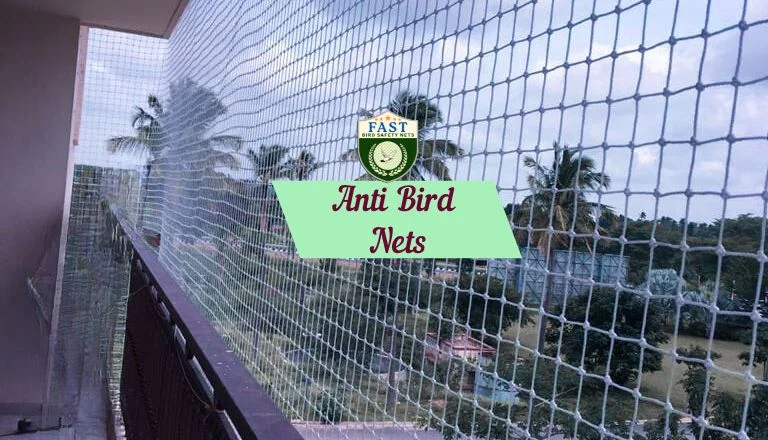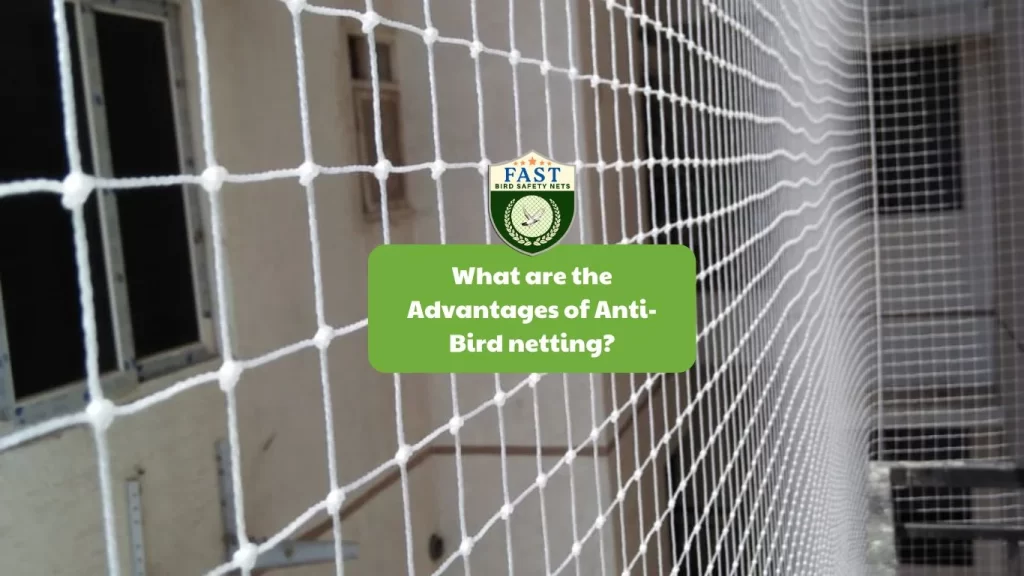Anti-bird netting offers several advantages for various applications:

- Bird Control: The primary advantage of anti-bird netting is its ability to control bird populations in specific areas. By creating a physical barrier, it prevents birds from accessing buildings, structures, crops, or other areas where they may cause damage or pose a nuisance.
- Protection of Property: Anti-bird netting helps protect property from damage caused by birds. This includes preventing birds from roosting, nesting, or perching on buildings, bridges, statues, and other structures, thus preserving their integrity and aesthetics.
- Crop Protection: Farmers use anti-bird netting to protect crops from bird damage. The netting acts as a barrier, preventing birds from feeding on fruits, vegetables, or grains, thereby reducing crop losses and ensuring higher yields.
- Health and Safety: Bird droppings can carry harmful pathogens and pose health risks to humans, especially in areas where they accumulate. Anti-bird netting helps maintain hygiene and safety by reducing the presence of bird droppings in public spaces, buildings, and facilities.
- Cost-Effective Solution: Compared to other methods of bird control, such as chemical deterrents or constant cleaning, anti-bird netting is a cost-effective and long-term solution. Once installed, it requires minimal maintenance and provides ongoing protection against bird-related damage.
- Environmentally Friendly: Anti-bird netting is an environmentally friendly solution to bird control. Unlike chemical deterrents or traps, it does not harm birds or disrupt ecosystems, making it a sustainable choice for managing bird populations.
- Versatility: Anti-bird netting comes in various sizes, shapes, and materials, making it suitable for a wide range of applications. It can be customized to fit specific areas, such as gardens, ponds, warehouses, and industrial facilities, providing versatile bird control solutions.
Overall, anti-bird netting offers a non-lethal, effective, and environmentally friendly method of bird control that helps protect property, crops, and public health while minimizing harm to bird populations.






